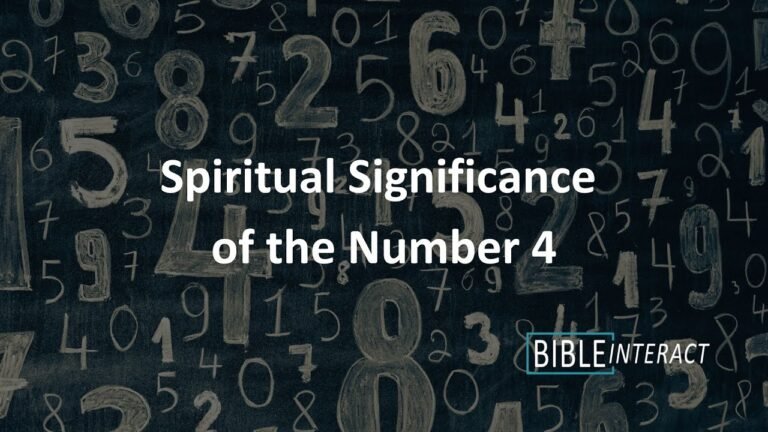Can the Devil Read Your Mind?
In a world where the line between reality and the supernatural often blurs, the question arises: can the devil read your mind? This intriguing inquiry delves into the realms of theology, psychology, and folklore, challenging our understanding of free will and the nature of evil. As we explore the implications of this question, we uncover the fears and beliefs that shape our perceptions of malevolent forces, ultimately prompting us to reflect on the power of our thoughts and the unseen influences that may seek to exploit them.
What is the Bible’s perspective on mind reading?
The Bible highlights the profound distinction between human understanding and divine knowledge, emphasizing that only an individual’s spirit can truly comprehend their thoughts. This is illustrated in 1 Corinthians 2:11, which asserts that just as we cannot access the inner thoughts of another person without their spirit, so too can we not fathom the thoughts of God without His Spirit revealing them to us.
This passage underscores the limitations of human perception in the realm of the divine. While God possesses the ability to know our innermost thoughts and feelings, we are reminded that our own understanding is inherently finite. Therefore, the scripture invites us to seek a deeper connection with God, who alone can illuminate the mysteries of His mind and intentions.
Is it possible for God to know your thoughts?
God’s ability to understand our innermost thoughts is a testament to His omniscience. He hears every prayer, acknowledges every spoken word, and understands the silent whispers of our hearts. This profound connection means that nothing is hidden from Him; our joys, fears, and desires are all laid bare before His gaze. Despite the complexity of our human experiences, we can find solace in the knowledge that we are never alone in our struggles.
However, while God knows us intimately, there are factors that can influence how He responds to our prayers. Our relationship with Him, the sincerity of our faith, and our willingness to align with His will play determinante roles in this divine dialogue. Above all, it is essential to remember that God loves us unconditionally, and this love forms the foundation of our communication with Him. It is through this love that we can seek understanding and find peace in our journey of faith.
Can God perceive your thoughts?
The Bible presents a profound understanding of God’s omniscience, emphasizing that He is aware of our innermost thoughts and emotions. This divine insight extends beyond mere awareness; it encompasses our feelings, attitudes, and even the decisions we contemplate before they manifest in our actions. Such knowledge signifies a deep connection between the Creator and His creation, highlighting a relationship built on understanding and awareness.
This belief invites us to reflect on our internal dialogues and motivations, encouraging a journey of self-exploration and authenticity. Knowing that God perceives our thoughts can inspire us to align our inner lives with our outward behaviors, fostering integrity and mindfulness in our daily choices. Ultimately, this awareness serves as a reminder of the importance of cultivating positive thoughts and intentions in a world filled with distractions and challenges.
Unveiling the Secrets of Thoughts and Temptation
Our minds are intricate landscapes where thoughts and temptations intertwine, shaping our desires and decisions. At the heart of this mental maze lies the delicate balance between our innate impulses and the rational mind’s guiding voice. Understanding this dynamic can empower us to navigate life’s choices more wisely, revealing the underlying motivations that drive our actions. By exploring the origins of our thoughts, we can unveil the subtle influences that tempt us, allowing for greater self-awareness and control. This journey into the depths of our psyche not only illuminates our personal struggles but also fosters a deeper connection to the universal human experience.
The Intrigue of Inner Voices: A Devilish Dilemma
In the depths of our minds, a cacophony of inner voices often wrestles for supremacy, each representing our desires, fears, and moral compass. This internal dialogue can feel like a devilish dilemma, pulling us in conflicting directions as we navigate life’s choices. Some voices urge us toward temptation, whispering sweet nothings that promise immediate gratification, while others call for restraint and virtue, reminding us of the long-term consequences of our actions. As we grapple with these competing narratives, we discover not just the complexity of our own psyche, but also the profound struggle that defines the human experience. Ultimately, it is this intricate interplay of influences that shapes our identities and guides our decisions, revealing that the most captivating battles we face are often fought within ourselves.
Mind Games: Where Darkness Meets Perception
In a world where shadows intertwine with the light of reality, the mind often becomes a battleground for perception and illusion. Each thought can morph into a labyrinth, challenging our understanding of truth and deception. As we navigate through these mental mazes, we confront the darker aspects of our psyche, where fears and desires collide, creating a complex tapestry of human experience. The struggle between clarity and confusion reveals not only our vulnerabilities but also our resilience in the face of uncertainty.
As we delve deeper into these mind games, we discover that perception is not merely a reflection of reality, but a powerful lens that shapes our existence. The interplay of light and shadow within our minds can either illuminate our path or obscure it in mystery. By embracing this duality, we unlock the potential for growth and transformation, learning to harness the darkness as a source of strength. Ultimately, it is through this intricate dance between what is seen and what is felt that we gain insight into ourselves and the world around us, forging a deeper connection to the essence of our humanity.
Exploring the Thin Line Between Insight and Influence
In today’s fast-paced digital age, the balance between insight and influence has become increasingly nuanced. Insight is the foundation of understanding, offering deep knowledge and perspectives that can drive meaningful conversations. However, when this insight is coupled with the power of influence, it can shape opinions and behaviors in profound ways. The challenge lies in ensuring that this influence is wielded ethically, promoting genuine understanding rather than manipulation.
As thought leaders and content creators navigate this thin line, they must remain vigilant about their intentions and the impact of their messages. By prioritizing authenticity and transparency, they can cultivate trust and foster a more informed audience. Ultimately, the most effective communicators are those who transform their insights into a force for good, empowering others to think critically and engage thoughtfully with the world around them.
The intriguing question of whether the devil can read your mind invites both fascination and contemplation. While folklore and popular culture often portray malevolent forces as possessing supernatural insight, the reality remains rooted in our understanding of free will and personal agency. Ultimately, the power of our thoughts lies within us, reminding us that our minds are our own and that the true battle against negativity begins with self-awareness and resilience. Embracing this perspective empowers us to navigate our fears, reinforcing that the thoughts we harbor shape our reality more than any external entity ever could.







